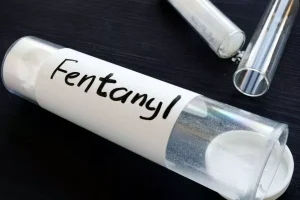Symptoms of Alcohol Withdrawal: Timeline and Signs of Danger

To understand why findings on cognitive impairment have been mixed, it is necessary to appreciate that adequate cognitive functioning does not, by itself, ensure a better treatment outcome. At least four factors may be responsible for the lack of consistent observations on the relationship between cognitive functioning and treatment outcome. A second strategy depended on practicing a task that was specifically designed to require attention and effortful cognitive functioning.

Getting enough sleep
- Some sensorimotor functions (e.g., sensitivity to touch) also may be deficient during this period.
- It also helps control our cognitive abilities, such as learning and memory.
- However, try not to have too many firm expectations, as symptoms can continue for multiple weeks in some people.
- But you’ll need to be honest about how much you drink and how often.
- Some research says that might only happen in a few days, while others say up to six months.
Addictive drugs such as alcohol provide fast intoxicating pleasures and impair a person’s impulse control and other higher cognitive functions. You might start to notice memory problems, poor motor skills, and slow reaction times. The best thing would be not to continue drinking so those changes can go back to normal. The effects of alcohol are not temporary and can have lasting consequences on a person’s health if they drink too much over time.
Remedies for Alcohol Mental Fog
- Sleep is another important factor in relieving the symptoms of alcohol fog or any common type of cognitive impairment.
- Four remediation strategies were compared, with a different group assigned to each intervention.
- This finding was consistent with the theory that a basic cognitive deficit in alcoholics is in the brain system(s) that control(s) effortful processing and integration of multiple sources of information.
“We found evidence for a rather rapid recovery of the brain from alcohol-induced volume loss within the initial 14 days of abstinence,” she said in a statement. However, seeking help and support is essential alcohol brain fog if the symptoms persist or interfere with daily life. A healthcare provider can provide a thorough evaluation and recommend an appropriate treatment plan to support recovery and improve overall well-being.
When Is Mental Health Treatment Necessary?

According to a new study, two standard drinks can make neglecting your child’s needs more likely. In one experiment, parents given cheap alcoholic beverages failed their children for more extended periods than those who consumed nonalcoholic drinks. In the near term, treatment can help to alleviate other consequences of alcohol in the brain, such as alcohol brain fog. This is defined as difficulties with concentration, confusion, and a lack of mental clarity. It’s not clear exactly how long it takes for neurotransmitters to return to normal when you quit drinking alcohol. Some research says that might only happen in a few days, while others say up to six months.
The Four Stages of Alcohol Withdrawal and What to Expect

Symptoms of Alcohol Withdrawal: Timeline and Signs of Danger
- However, seeking help and support is essential if the symptoms persist or interfere with daily life.
- While brain fog sometimes goes away on its own within a few days or weeks after quitting drinking, it can persist for extended periods for some people, particularly those with severe alcohol misuse.
- Sometimes complete recovery of cognitive functioning can take weeks, or even months or years.
- Other factors, such as age and drinking history, also affect time-dependent recovery.
What is Alcohol Withdrawal


